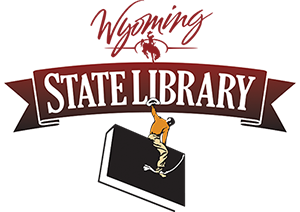
The exhibit at the Wyoming State Library
A special exhibit now at the Wyoming State Library, “Cowboy Carnegies: Wyoming’s Historic Libraries,” explores the history, architecture, significance, and preservation of these buildings.
In the late 1800s and early 1900s, industrialist Andrew Carnegie spent $56 million of his personal fortune to build 1,681 public library buildings in the United States. Sixteen Wyoming towns and cities in 15 counties received a total of $245,000 of his library building grants between 1899 and 1917. Per capita, Wyoming received more money from Carnegie than any other state.
Wyoming’s Carnegie libraries were located in Albany, Big Horn, Converse, Fremont, Hot Springs Johnson, Laramie, Natrona, Niobrara, Park, Platte, Sheridan, Sweetwater (Green River and Rock Springs), Uinta, and Weston counties. Some still serve as libraries, or as part of newer, expanded library buildings. Some were repurposed as museums or for local government functions. Others were demolished and exist only as fond memories for those who once walked through their doors.
Visit the Wyoming State Library at 2800 Central Ave. in Cheyenne to see “Carnegies: Wyoming’s Historic Libraries” and learn more about this chapter of the state’s past.
This traveling exhibit was created by the Alliance for Historic Wyoming (AHW) with funding from Wyoming Humanities. Learn more about the project. Linda Waggener, now deceased, contributed greatly to Cowboy Carnegies by sharing her extensive research on Wyoming’s Carnegie Libraries with the AHW. Waggener’s research materials are now held at the University of Wyoming’s American Heritage Center.
Also, you can read more about the state’s Carnegie libraries in the Winter 2007 Wyoming Library Roundup.
